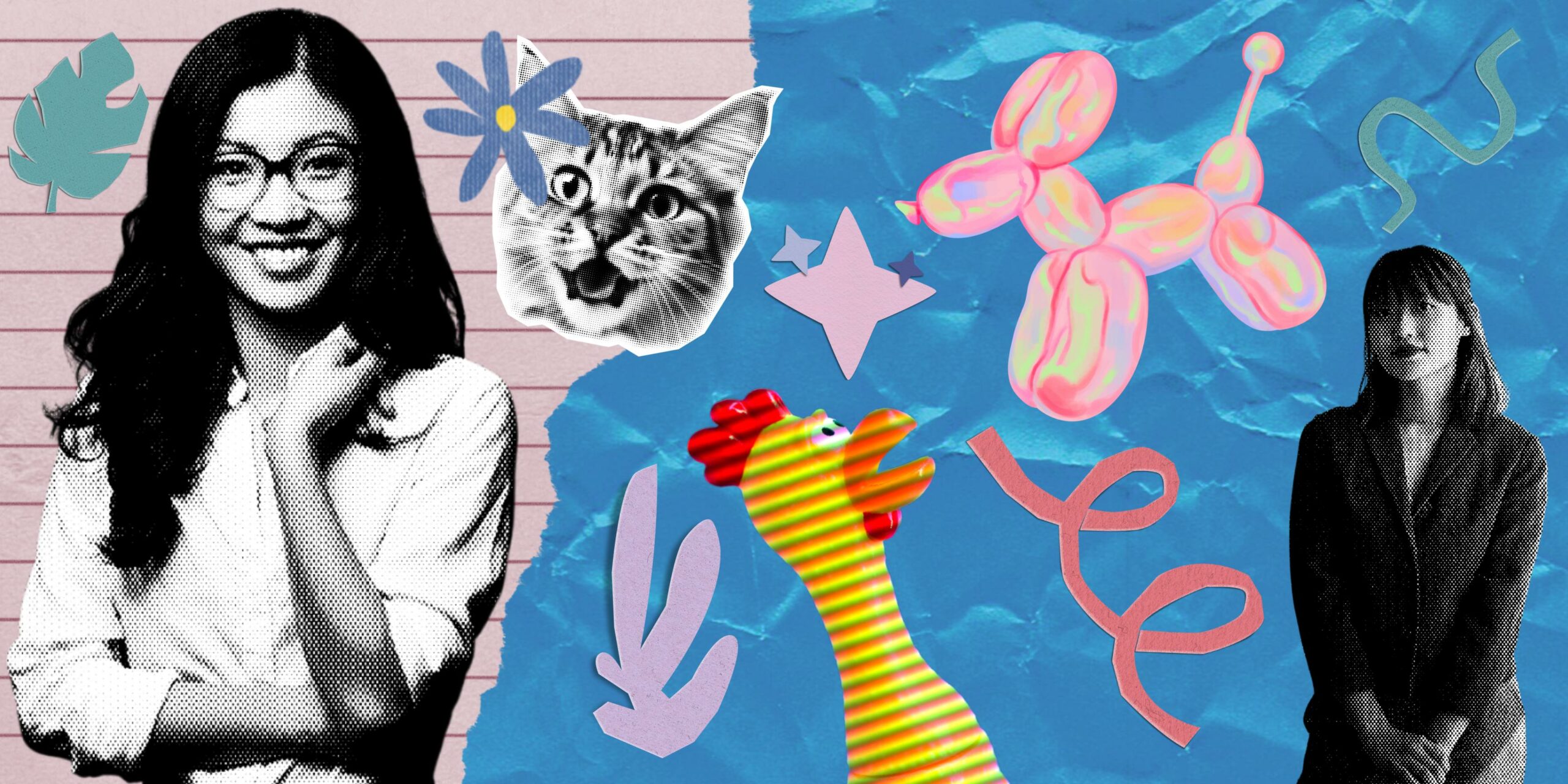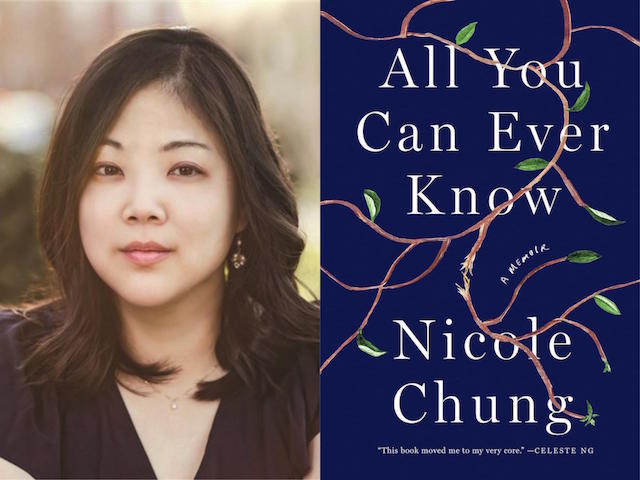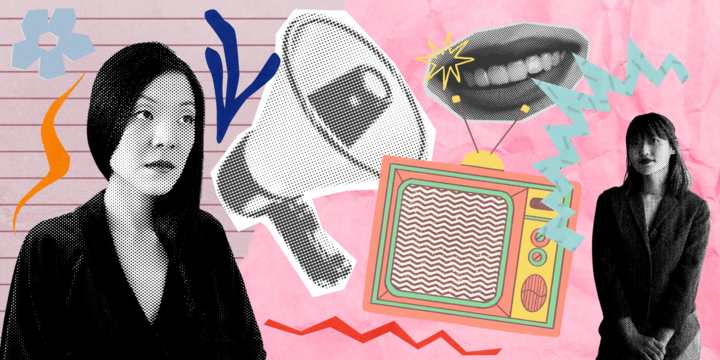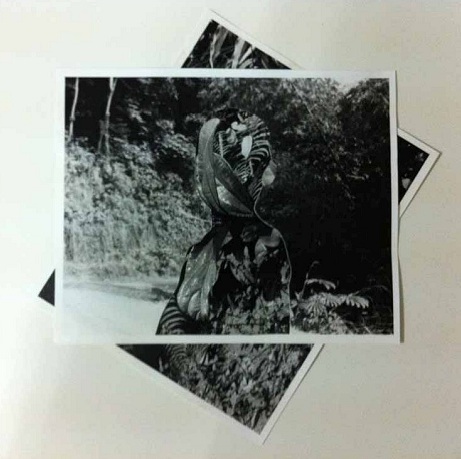A conversation with Weike Wang about humor, Joan is Okay, and writing.

November 6, 2023
Every once in a while, you encounter a fictional character who stays with you: someone whose voice is just so particular, whose observations and judgements of the world around them are so exact yet surprising, that you wish you could ask them what they think about everything.
This is how I feel about the narrator, Joan, in Weike Wang’s second novel, Joan Is Okay. Joan, the daughter of Chinese immigrants, lives a pretty conventionally successful life. She’s an independent woman, a thirty-something ICU doctor. Sure, she’s always working. And the health crisis that descends on the city certainly doesn’t lighten her workload. And the fact that her father has died suddenly, and the hospital has strongly encouraged her to take a 6-week bereavement leave, and her mother has returned to America with the hopes of reconnecting are . . . well, complicating the statement: Joan Is Okay.
From the very first page, she’s a narrator you can’t help but root for: “Today someone said that I looked like a mouse. Five six and 290 pounds, he, in a backless gown with nonslip tube socks, said that my looking like a mouse made him wary. He asked how old I was. What schools had I gone to, and were they prestigious?” She goes on to say: “I told the man that he could try another hospital or come back at another time. But high chance I would still be here and he would still think that I looked like a mouse. I read somewhere that empathy is repeating the last three words of a sentence and nodding your head.”
Now this is someone I want next to me for all of life’s negative experiences. While I could not ask Joan for her perfectly snarky and honest take on the world around us, a few months ago, I had the privilege of speaking with her creator, the brilliant Weike Wang, about sophomore novels, blending humor and heart, surprises, and never being able to escape Shen Yun fliers in the mail.
Katie Yee
Are there any writers or books or anything else (movies, TV shows, art, podcasts) whose humor you were inspired by before writing your novel?
Weike Wang
With Chemistry, I was reading a lot of Amy Hempel, Grace Paley, and Lydia Davis—this sense of stand-up comedy truncated into very, very short scenes. They’re of that tradition. That really fed into Chemistry—finding these nuggets that I could turn into something funny. Observational humor, right? With each, book you want to do something different. You don’t want to do the same thing.
With Joan, I was pretty inspired by absurdist literature. I do like Kafka, but sometimes he can go a little far. But I had read Convenience Store Woman by Sayaka Murata and that was a really wonderful book about this woman who just loves working in a convenience store. The absurdity about work and work/life balance and what that means to someone who was brought up in an Asian immigrant background in America. I was reading that and thinking about The Stranger. This classical existential book about how this guy goes on trial for not grieving his mother, not being emotionally expressive. I just thought: Isn’t that something all Asians go through? We’re considered robots, and we’re considered workaholics. There’s this break when it comes to these sorts of identities.
Joan and Chemistry are a little more about the individual dysfunction. The individual’s dysfunction: internally, externally. With Joan Is Okay, I’m more interested in exploring family dysfunction, relationship dysfunction. I get a lot of emails about this second one! Especially from doctors.
KY
Angry doctors write to you?
WW
They’re not angry, but they’re just like, “Do you know that, as a doctor, I don’t get any days off? Six-week bereavement leave? There’s no such thing.” Of course, there’s not. This is a make-believe world. Doctors can be very literal people. That’s why some of them are not funny writers. They can’t see themselves as a character in many things because we take doctors so seriously. Scrubs was another thing I was thinking about—the medical humor that is there; most doctors just don’t talk about the humor in their jobs, because no doctor wants to admit that they made a mistake or their life is kind of mundane. But I do get a lot of strange emails from doctors about that. I think sometimes Asian doctors either want the Crazy Rich Asians or this high-power doctor image. I’m just never going to write that.
KY
Have you always considered yourself a funny person? Did you sit down and think I’m going to write a funny novel? How did you realize that you could come to that on the page?
WW
For most of my upbringing, I never thought that I could actually be a writer-writer because there’s this sense that you have to have gravitas, and you have to have these Ideas and this Seriousness of Being a Writer. (I don’t know why I’m lowering my voice, but it’s probably the masculinity of it that you’re taught in schools, and the white patriarchy of it, to be honest.) In college, humor didn’t come naturally to a lot of people in workshop. For me, it was just always there. It was something that I could use. It was a tool that I didn’t need to be taught.
I don’t naturally consider myself a funny person. But on the page, I’m given so much time to gestate and think and edit. That’s what made me realize that I could write or that I at least could make an impact in writing. For a while, I never thought that anyone who had humor could be taken seriously as a writer. That added to being Asian, being a woman. You’re not supposed to write. Blah blah blah.
KY
You’re not supposed to write, and you’re not supposed to be funny.
WW
You’re not supposed to be funny! You’re not supposed to talk. There are so many things that I was working against that work well on the page. Humor is one of the hardest things to teach. Many people I know who are funny in real life—for some reason, on the page, it’s different. It could just be the fictional audience that the writer is writing for. Some people need that live audience. They need that immediate feedback that writing something doesn’t always give you.
KY
How do you know when something is landing without a laughing audience in front of you? Or how do you sharpen your humor during the editing process?
WW
There may be some things where I’ll give my work to my husband or give it to my friend as a sentence and ask them: “Do you think this is funny?” To be honest, by the time I do that, I already know that there’s something funny about it. Most of the humor really comes from editing. Cutting out explaining what is funny. Writing to a smarter reader is always the best way to do humor. You can always add stuff back in, but sometimes when you put too much in there, it sort of ruins the joke.
With situational comedy, things where I know this character is going to come back into the plot, for example, that I usually have planned out pretty early. For more of the line-by-line stuff, I don’t really know it’s going to happen until I write it. I sit down and try to write, and I don’t always know what’s going to happen that day, which is why I love it. If I knew what was going to happen that day, it would be a total drag.
KY
That process is kind of clear in the experience of reading your novels. I feel like I’m surprised by the way that some of your sentences turn. Like this one-liner, when Joan is going through her mail: “A Shen Yun brochure—5,000 years of civilization reborn.” I love that em-dash. Everything about this sentence is just perfect. I wasn’t expecting it, but it makes sense that those flyers would find you, even in fiction.
WW
I keep getting those flyers! I get 20 of them a year in my mailbox! I don’t get it. I really don’t.
KY
I’ve moved recently, so they haven’t found me yet, but I’m sure the day is coming.
WW
If they ask, I’ll give them your address. You can keep getting a flood of these crazy flyers.
KY
Thanks [laughs]. Could you walk us through the process, a little? Of invoking the everyday and making it funny?
WW
Joan was an incredibly hard book to write. I think it’s a psychological thing now because everyone always says the second book is hard to write, so it’s this self-fulfilling prophecy. With Joan, it was because of the character—finding someone so different in terms of how she was thinking and trying to put myself into her head. One of the ways that I found that I could get into her voice was by listing out stuff that she would get in the mail: this brochure, this junk mail, the invitations that her brother gives. It was a good tracker of how she was thinking about things. I already had so many of these flyers. I think about sentences that don’t even make any sense. How are you going to experience 5,000 years of civilization? Right now, their tagline is: “China before communism.” I don’t know what they’re doing with it, but it’s a little bit depressing in some ways.
If I’m thinking about something like that a lot, then there’s a reason I’m thinking about it. I know it’s worth writing about. There’s something off with it. If I forget it, then it probably wasn’t that memorable. If I’m writing, certain things just start to resurface. It’s like water boiling. Then you have these things coming up. You put them all in there and see if it works. And then next you edit, and take things out. It refluxes again.
I hate diarying. I hate journaling. For some reason, I conserve a lot of words. When I’m going to write, I’m able to piece it together. But it is a lot of piecing together. Chemistry and Joan were both not written very linearly. Joan especially took a massive overhaul of rearranging and rearranging. As a writer, you’re thinking about it all the time. You’re thinking about your characters. You’re thinking about if the trap is working.
KY
If the trap is working . . . yes! I loved that interview in Electric Lit that you did with Gina Chung. You’ve talked about using humor as a coping mechanism or a way to put your audience or whoever you’re talking to at ease. Do you ever worry about isolating readers who don’t get it? Or can you speak to your relationship with your perceived audience?
WW
A book goes through so many hands. Your agent reads it. Your editor reads it. Your editor’s assistants read it. Marketing reads it. If, at some point, it feels like certain things are off, I probably would have heard it by then. Friends read it, too. By the point a book gets to you, I’m not super worried anymore.
I do sometimes think, with humor, there has to be a balance. You can’t be too mean, right? Unless! Unless you put it in a character’s mouth who’s known to be mean. Then that’s kind of funny. Sometimes with humor, it’s just the placement of it. It’s the context. You can give it to a different character. You don’t need to give it to your protagonist. There’s a way to always write something that can be funny. That’s what’s so wonderful about the English language, that there’s this nuance with humor. There’s a way that you can write something that can be pretty funny. It can be the same exact topic, but you can make it dry, funny. You can make it many different ways by how you arrange the words.
KY
Can you speak to the emotional register or emotional landscape of humor? Either as a way to come at grief or soften anger?
WW
Tragedy and comedy famously go well together. Anger can be funny, if it’s controlled. Anything that’s a strong emotion can be funny. Maybe not pure joy. But certain other things: fear, disgust, anger. Because those strong emotions are uncomfortable. Oftentimes, humor is meant to be somewhat uncomfortable. But not untrue. I tap into a lot of these emotions as I’m writing.
As an Asian person in America, oftentimes I find myself pretty angry about certain things. No one wants to read a screed! There’s a way that you can dose it out that can be not so sarcastic but not vanilla, that can get to a point but also have the reader enjoy reading about that point and not feel pushed away by it.
My biggest worry is: is it too much of one thing? Is it too one-note? Humor works well if it’s blended. In any story, if there’s a little bit of humor, you have the ability to add in heart. It’s a mixed bag that you’re creating in this story.
KY
I want to go back to a question about your audience. I’ve been thinking specifically about Asian American humor—or the way humor can feel specific to a culture. Do you ever write down something that’s more culturally specific and think you should explain? You were talking about writing to a smarter audience.
WW
In terms of schooling, I grew up here, so I’m not immune to American or Western humor, but I think one of the funniest things about any East Asian culture is people are just so honest, to the point where, when they say something about you, you’re like, “Man, that is very true, and it’s a very inappropriate time to say that.” But it’s very true! I can see there’s a huge misunderstanding sometimes of how things don’t translate well.
When I write, I don’t really think of one audience or another audience: an Asian audience or a non-Asian audience. I think there is something a little universal about English humor. When I read Murata—I wish I could read it in Japanese—but I think of some of the ways that the language is so direct. It’s a knife that cuts through the page. No hesitation. No flinching. There’s almost no padding for any kind of delivery. I’m interested in if that’s how it sounds in Japanese, or if that’s just the translation.
If I were to translate how my mother sometimes talks to me, it is that kind of direct, sharp stabbing. I quite enjoy it now that I appreciate it. I use that as part of my fiction. I think about writers like Muriel Spark who are also very direct in their humor. It’s not necessarily an East Asian thing; it’s just what I found as a commonality. But there’s also humor that winds, right? Humor that’s convoluted. It’s trying to writhe out of place, and there’s pacing in there. I think about a balance of both of those things, but I don’t always write with an audience in mind. In the end, I’m writing for myself. I’m writing the things that I find funny.
KY
What do you find funny? What’s something that always makes you laugh?
WW
My dog makes me laugh all the time! He’s just so bored with my life. I can just see it in his eyes, that he’s bored watching me write all day. It’s just funny to me. He’s such a prissy dog. That’s what he looks like all the time, staring at me. Like, “What are you doing, mom?”
KY
My dog always sits next to me in his giant chair and is sighing all day. Dramatically.
WW
What’s wrong with you? What’s so bad about your life? But that’s my dog. He’s pretty funny. He just has some character flaws that I find endearing.
KY
Like what?
WW
He really likes this very annoying chicken squeaky toy that he will squeak in the middle of the night. He has this lamb that he likes to eviscerate. Every toy we give him, he sort of likes to eat the eyes first. He’s a very fluffy, prissy, designer-breed dog, but he sort of has this strange dark flaw that I find disturbing. I didn’t have a dog or a pet growing up, so I think he taught me a lot about taking care of another person or another animal. I sound ridiculous when I’m with him. I talk to him. He doesn’t even know my name at all! And I have conversations with him.
KY
I mean, same. Do you have another voice for your dog?
WW
Oh, yeah. It goes into a different register. I employ a lot of the first-person plural: “What do we think about this? Are we going to go here? Maybe we should do this?” It’s ridiculous.
KY
It’s good to have a canine sounding board.
WW
Dogs make me laugh. I really like animals. Really dumb humor makes me laugh. Accidents. People getting—not seriously hurt—but people getting mildly hurt. I was recently the maid of honor at my best friend’s bachelorette party. She just had terrible stomach sickness, and she just kept vomiting. After the fifth time she vomited, I just cracked up. I could not hold it together! We planned all these activities, and she can’t eat anything. We’re just sitting here eating salad dressing.
KY
There’s something about the repetition, too. The first time, it’s not funny.
WW
But the fifth time, it’s very funny. Sometimes these things just happen. You have to laugh! There’s nothing else you can do. You can cry, but… I wasn’t vomiting.
KY
Do you feel like there are things that are off the table when it comes to writing or humor? Or do you think there’s a way to make anything funny?
WW
I don’t think anything is off the table. I do think humor that is mean-spirited is off the table. If I’m trying to write a character just to make fun of them, I think that’s somewhat mean-spirited. Or just to get revenge on someone. Sometimes humor that’s meant to shock or really disturb is not serving a purpose. And sometimes humor that forgets that it’s meant to be entertainment . . . Some writers forget that they’re in the entertainment industry. A reader has to be entertained, or they’re not going to read you. Humor that’s a little bit stuck-up is not approachable. I don’t think anything is off limits for humor, but I do think humor that is mean-spirited and that’s just the way it is is not funny. It hasn’t been processed.
There’s a spontaneity to humor, but there’s also a sense of responsibility. I’m respecting the characters that I’m writing. There has to be at least a desire to be okay making fun of yourself and making fun of these characters. Have a little bit of fun with it.
This interview has been edited and condensed for clarity.



